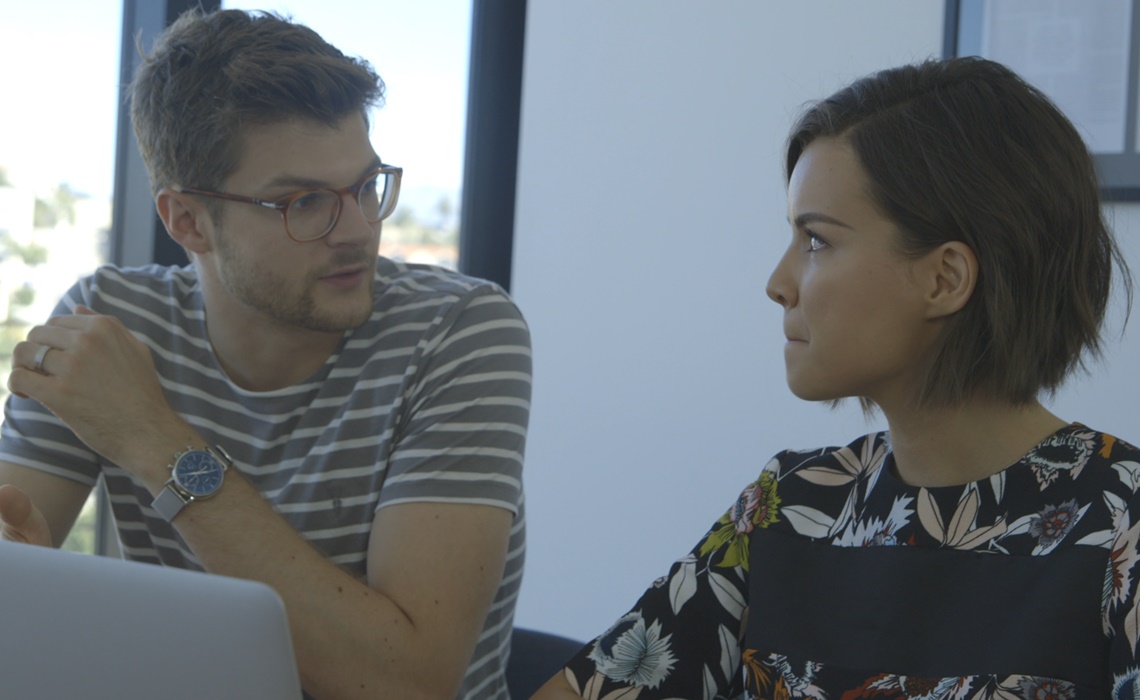This debate about the future of the BBC might be missing the point. In the black corner scowls the Dark Lord of Swingeing Arts Cuts John Whittingdale, while in the fluffy corner is everyone who doesn’t want anything to change. By their “I heart Lyse Doucet” shall you know the latter. We’re all of us, on both sides of the fence, of a certain vintage. The kids, who like it or not seem an absolute dead-cert shoo-in to inherit the future, haven’t got a dog in this fight. Why? Because they don’t watch TV. Any more than they buy newspapers. They watch YouTube. If they like the BBC it’s as a publisher of free online news content.
Rise of the Superstar Vloggers was a television documentary about, among other things, the death of the television documentary. And of the commissioning editor, the scriptwriter, the channel controller, the cameraman/woman and, flaming obviously, of BBC Three. The youth-friendly channel on which this was shown has already been condemned to what the wrinkled Methuselahs of analogue imagine to be a half-life online.
This tour of the vlogosphere came courtesy of Jim Chapman, a vlogger whose posts have been viewed nearly 200 million times. He went around the known world – basically the south-east of England and LA – meeting other perfectly pleasant vloggers who have ripped up the old media playbook to become celebs in their own bedroom. They mostly vlog about make-up/fashion/style/videogames/themselves. Sometimes they even leave the house. By the extended right arm at the end of which they clutch a camera into which they talk animatedly shall you know them. And the kids dashing across the road to gets hugs and selfies. (Pictured below: Jim Chapman with fashion and beauty vlogger Ingrid Nilsen)
 Outside the demographic, no one’s ever heard of any of them. Inside, their fans are legion. Alfie Deyes, who vlogs about sort of nothing, is so big that people cross the planet on the off chance of bumping into him in Brighton. KSI, a selfmade Watford rapper, sells out his gigs in two minutes. A thousand girls turn up for the launch of the graphic novel by ThatcherJoe, a little vlogger with tall hair who used to be a traditional roofer in Somerset. It’s all mental unless you’re under 30, in which case it is what it is. In the old days you had to wait until people were dead before you could read their published diaries. Not any more.
Outside the demographic, no one’s ever heard of any of them. Inside, their fans are legion. Alfie Deyes, who vlogs about sort of nothing, is so big that people cross the planet on the off chance of bumping into him in Brighton. KSI, a selfmade Watford rapper, sells out his gigs in two minutes. A thousand girls turn up for the launch of the graphic novel by ThatcherJoe, a little vlogger with tall hair who used to be a traditional roofer in Somerset. It’s all mental unless you’re under 30, in which case it is what it is. In the old days you had to wait until people were dead before you could read their published diaries. Not any more.
Like any form of media, this world is an exceptionally broad church. The immediacy of the confessional environment is great for those looking for validation about their sexual choices, or wanting to talk about violent abuse or depression. The vlogosphere, just like everywhere else, is also rife with sex pests and product placement. We heard from a media psychologist, which surely isn’t a thing, and there was much discussion about our old chum reality (as in the realness or otherwise of).
“Knowing that other people are listening is genuinely changing the world,” concluded Jim. Hm. Maybe. All those advertisers clustering like wildebeest at a fresh watering hole don’t look very new from here. The one thing this enlightening documentary didn’t do is show us the money. Vloggers are making stacks of it, but figures were not mentioned. Not, one suspects, out of shyness or embarrassment or fear of vulgarity.















Add comment